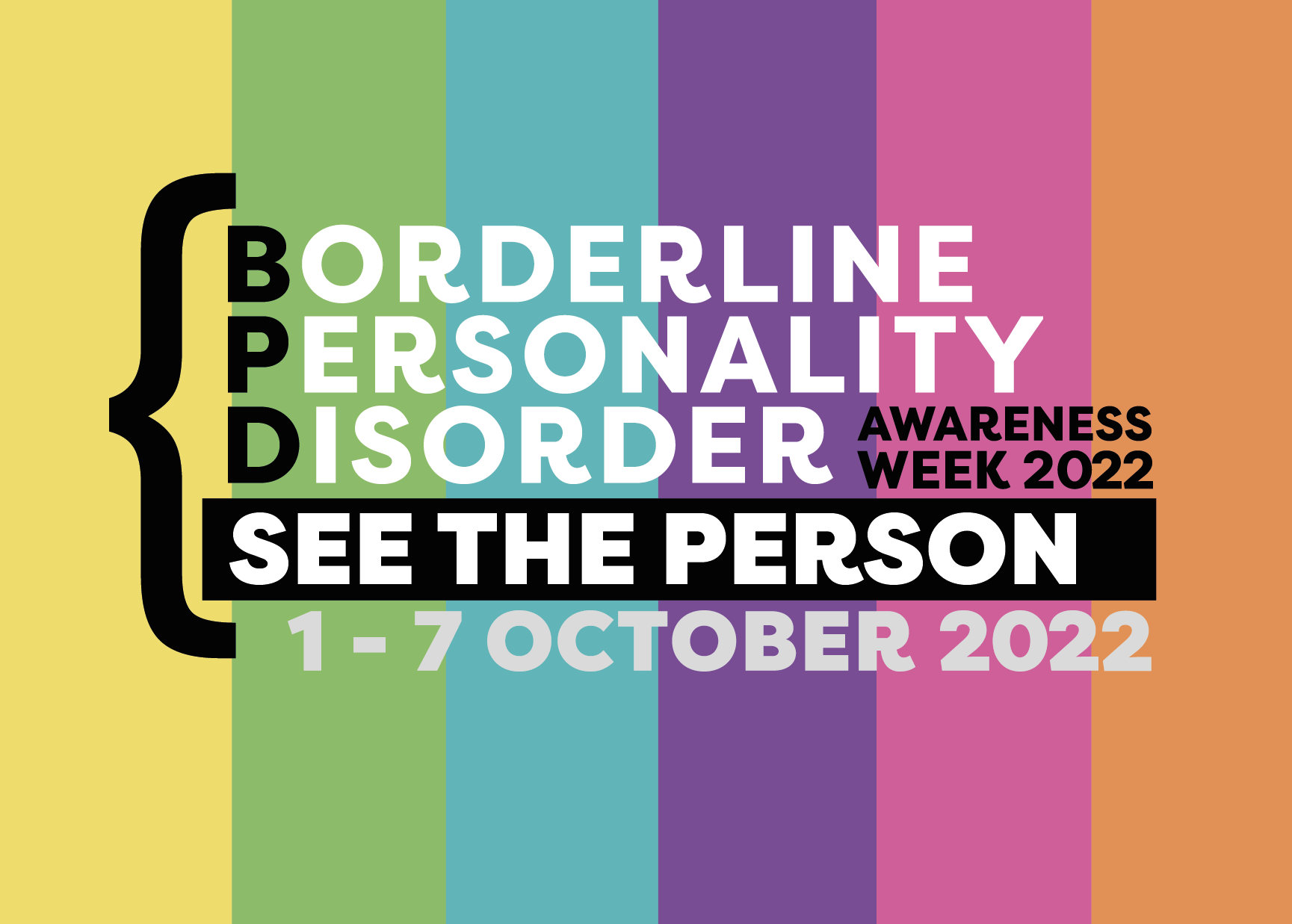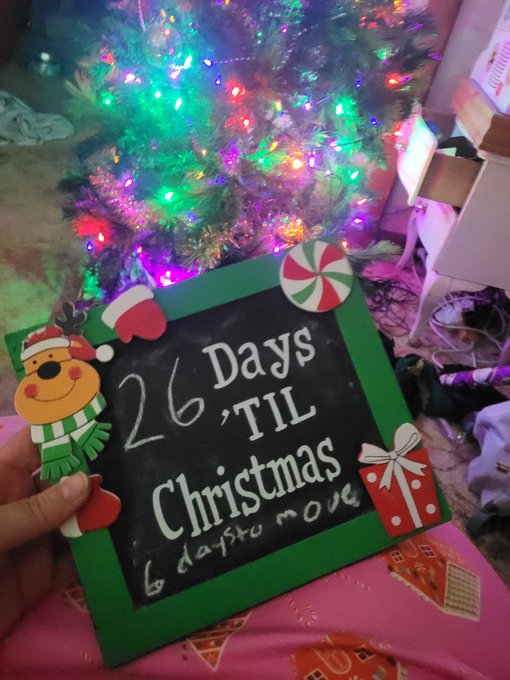Hey, it me!
Let me preface this post with I’m not an expert on anything other than myself and I’m still learning bout her too. This is not medical advice and I’m sure you can argue against any of my points, but this is how I currently see the fun world that is having Borderline Personality Disorder and it will likely change again over time, come back to this post for next year’s BPD awareness week and shudder at my naivety!

See the person is the theme for this year’s BPD Awareness Week here in Australia.
People living with borderline personality disorder (BPD) often find that their diagnosis is the first and only thing other people see. The 2022 BPD Awareness Week campaign encourages everyone to see the person alongside their BPD diagnosis, symptoms and survival actions. We’re all complete and unique individuals, each with our own strengths and challenges.
The growing body of mental health knowledge recognises the diversity of life experiences: the role genetics can play, experiences of gender identity, sexual orientation, neurodiversity or trauma can all contribute to our well-being. It’s a universal experience to be assigned various labels throughout our lifetime – and many people living with a BPD diagnosis experience stigma. We all share the fundamental need to be treated with respect and dignity, free from stigma and discrimination.
This year’s message reminds us to look at the person alongside the labels, ask what their experiences are and how they continue to make sense of the world. For carers, family, friends, supporters and clinicians it’s a reminder that underneath negative or harmful coping behaviours a person can often be struggling. Let’s celebrate the person they are alongside their diagnosis, acknowledging their strengths, resilience and courage in order to SEE THE PERSON !
This campaign is informative and educational, having been co-designed and co-produced by the strong voices of people with lived experience to promote recovery, positivity and hope.
So, what is Borderline Personality Disorder?
Borderline Personality Disorder (BPD) is a complex mental disorder that is often misunderstood. People with this disorder are frequently discriminated against and stigmatised.Symptoms for people with this disorder may include emotional distress, self-harm, difficulty relating to others and the world around them. This can be very distressing for the person and for people close to them.Currently between 2% and 5% of Australians are affected by BPD at some stage in their lives. The symptoms of the disorder usually first appear in mid to late teens or in early adulthood, with women three times more likely to be diagnosed with BPD than men.The causes of BPD are not fully understood. They are likely to involve biological, social and/or environmental factors. For some people these factors may relate to childhood experiences of trauma or neglect.Contrary to common belief, people with BPD can recover! With early diagnosis, appropriate treatment and support the prognosis for people with BPD is positive.Having BPD is not deliberate; it is a disorder people do not choose to have. People can recover!”
Well, you can get a diagnosis of BPD when you meet 5 of the 9 diagnostic criteria.
- frantic efforts to avoid real or imaginary abandonment
- consistently intense and unstable relationships with other people, alternating between idealising them and devaluing them
- persistently distorted self-image or sense of self
- at least 2 impulsive behaviours that are potentially self-damaging
- ongoing self-harming behaviour, suicidal behaviour or threats
- intense feelings lasting hours to days
- long-term, chronic feelings of emptiness
- difficulty controlling intense and inappropriate anger
- feeling disconnected from reality, or having paranoid thoughts
It doesn’t matter which ones, and the ones you meet can change over time, and you can have only 4 and technically not “have BPD” but still be suffering. You can go back to meeting the criteria after “Remission”, because while therapy and medication have their place, BPD is not a simple “chemical imbalance” you can fix with the the right medication regime, and DBT and other therapies can have a huge impact on your life, but again it’s not a one-size-fits all thing, as you can imagine being such a variable diagnosis. Since you only need 5/9 to meet it, it’s possible me and my friend with BPD only share one of the criteria, and so present extremely differently.
Why people come to be diagnosed with BPD is also such a varied path. This might seem a little reductive, but I’m starting to notice to main streams in the people I’ve met with BPD, which overlap many times. There’s the group that have experienced clear, pin-pointable trauma and those who struggled to regulate their emotions and interactions with the world for as long as they can remember and then they get to teenagers or adulthood and can’t hide it any more and it gets messy. Of course they overlap, with the second group unfortunately finding themselves vulnerable to mistreatment and abuse that leads to trauma, but they seem to be the two main “paths to BPD”. Many of the second group look back into their childhoods and realise that they may have been living with Autism or ADHD but not had it recognised as they weren’t classically Autistic, which led to them developing the coping strategies that are BPD in order to attempt to function in this world. Others are the Queer Kids, not fitting in gender or sexuality wise and tried to fit in so badly that they came to grief. BOD seems to come from trying to fit into the world when you’re not the right fit, trying so hard, but just not getting it right.
The diagnostic label of Complex-Post Traumatic Stress Disorder (C-PTSD) is being used more widely in recent years, and often to do with that first group, the survivors of Childhood Sexual Assault or other traumas in their formative years. Organisations like The Australian BPD Foundation are even looking to make their names more inclusive of these extremely similar and even overlapping disorders than impact the lives of those living with them significantly.
If we didn’t have to have diagnostic labels to access supports, it really wouldn’t matter whether you considered yourself to be Autistic, Borderline, CPTSD, a survivor, ADHD, Queer or any other thing trying to fit into this world, but it does, from needing to meet the BOD criteria to access Dialectical Behavior Therapy programs, to knowing you have ADHD to get the right medications, to being “Autistic enough” to access the NDIS, or getting the right paperwork together to get DSP. The world needs us to have labels, and they really do help in gaining an understanding of yourself, and learning how you work and how to figure out how to function or even thrive in this world. Early diagnosis and understanding is such a preventative thing, and I’m glad that children get ADHD and Autism recoginsed younger and younger because it means we can help them and help them to help themselves at this early stage, while we’re able to coach and comfort them, because it “Gets messy” as it does for many in their teens.
I call myself Borderline and Autistic, I strongly saw myself in the BPD criteria the first time I read them a little over ten year ago. I worked in Autism organisations in my 20s and 30s and never ticked that the Fiona I grew up as could be considered Autistic, but getting to know more and more Autistic and ADHD and other neurodiverse adults I’m able to learn about the parts of Autism that I “have”, how the sensory world works for me, how I operate socially, how I communicate, how I need to time and space to regain my social and sensory spoons after doing the things I love and the things I want to do. How caffeine affects or doesn’t affect me and whether that points to ADHD lol. I remember being called out at work by managers about how I operated in meetings or interview and I can really see now how that might have seemed odd, but also if only I understood that I could be “on the spectrum” it would have made sense. I don’t have an Autism diagnosis, and I’m lucky enough to not have top seek one at this stage because it’s bloody expensive. So I just work on understanding and educating myself, and working with who I cam to be the Fiona I wanna be, BPD or no BPD.

Happy Borderline Personality Disorder Awareness Week – This is me!




